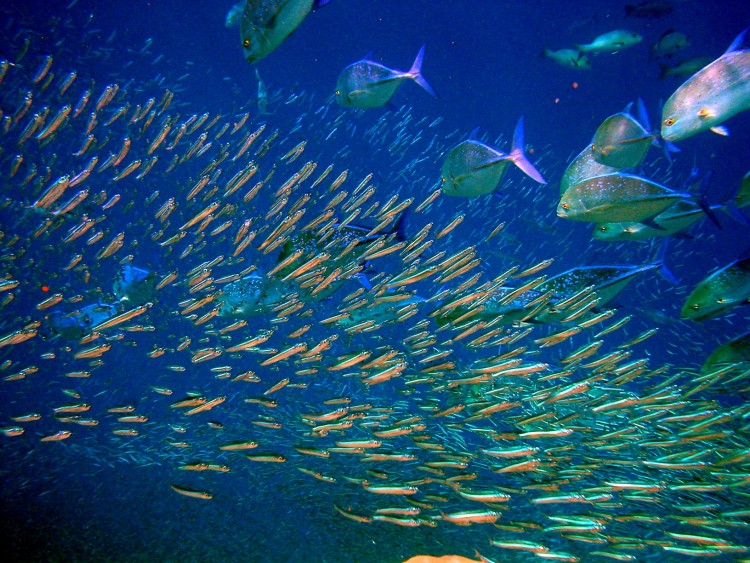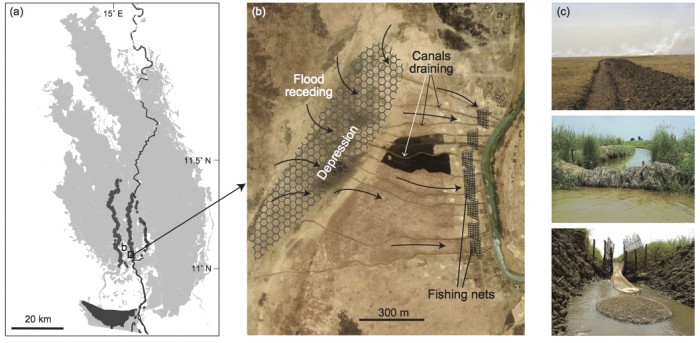“More to Sea” is a photojournalism project I engaged in May 2018 to June 2019. This project was an independent project, which was done after I graduated in a marine governance course. I’m currently a PhD student at Faculty of Arts and Social Sciences of the University of Technology in Sydney where I study livelihood sustenance of small-scale fishers and local food systems. With More to Sea, I aimed to learn how small-scale fishers were doing. Photographs were combined with fishers’ stories and published on a website (moretosea.nl) and social media. An ebook is about to be launched by Too Big To Ignore, which discusses problems faced by fishers, solutions found, and future scenarios. For the EnviroSociety blog, I have created this short video which shows a number of quotes and photos of fishers that illustrate relations to fishing livelihoods, and people’s knowledges of their environment.
Tag: fisheries
Shifting Baseline and Factish Resilience
The 1949 Fisheries Law in Japan underwent a historic revision in 2018, which went into effect in December 2020. The revision included the further application of science-based resource assessment, the introduction of the Individual Quota (IT) system, the expansion of the Total Allowable Catch (TAC) to more commercially targeted species, and the loosening of the entry restrictions to open fisheries to private companies. While the inclusion of scientific knowledge and approaches could deepen our understanding of oceans and marine species in the Anthropocene, most coastal fishing communities in Japan, whose fishing operation is local and cooperative-based, could find this revision a threat to their communal livelihoods due to its emphasis on rationalized single species-oriented approach to management, rather than a relational multi-species approach for their community wellbeing. This short essay aims to supplement and contextualize my recent article in Environment and Society (Hamada 2020) with the current state of Pacific herring fishery in Japan.
Studying African Floodplains as Coupled Systems
“The major problems in the world are the result of the difference between how nature works and the way people think.”
— Gregory Bateson
The quote from Gregory Bateson, from the documentary Ecology of Mind (2011) that Nora Bateson made about her father, captures one of the key themes in his work: the way we perceive and conceive of the world is poor match for how the world really works (Bateson 1972, [1979] 2002). The mismatch between our theoretical models and the world we are studying is a key problem in scientific research. I tell students that “theory world” and the “world out there” are two very different worlds and that theoretical models are simply thinking tools that allow us to get a better handle on the world. Some of these thinking tools are better for some problems than for others, and most problems require multiple tools to get the job done.
New Featured Article!: “Fisheries Privatization” Available as a Free PDF Download
The latest Environment and Society featured article is now available! This month’s article, “Fisheries Privatization and the Remaking of Fishery Systems,” comes from Volume 3 (2012). Courtney Carothers and Catherine Chambers examine specific examples of how nature-society relationships among people, oceans, and fish are remade as privatization policies take root in fishery systems.
Visit the featured article page to download your copy of the article today before it’s gone! A new article is featured every month.

COURTNEY CAROTHERS is an assistant professor of fisheries at the University of Alaska Fairbanks. She is an environmental anthropologist whose research program focuses on understanding social, cultural, and economic diversity in fishing communities and explores ways to sustain that diversity into the future. In one central area of study, she explores the material, social, and symbolic shifts in fishing livelihoods as fishing rights become privatized. In another, she partners with indigenous communities in the Arctic to study social-ecological change and subsistence ways of life. Her specific areas of expertise include: political ecology; resource enclosure and privatization; indigenous knowledge, science studies, and politics of knowledge; subsistence, mixed, and alternative economies; socio-ecological change; fishery systems; and Alaska Native cultures.
CATHERINE CHAMBERS is a doctoral fellow in the Marine Ecosystem Sustainability in the Arctic and Subarctic program at the University of Alaska Fairbanks. As a recipient of Fulbright and Leifur Eiríksson scholarships, she is currently conducting research through Hólar University College and the Blönduós Academic Center in Blönduós, Iceland. Her dissertation research focuses on subarctic coastal communities and issues of access and participation in marine-based livelihoods.



